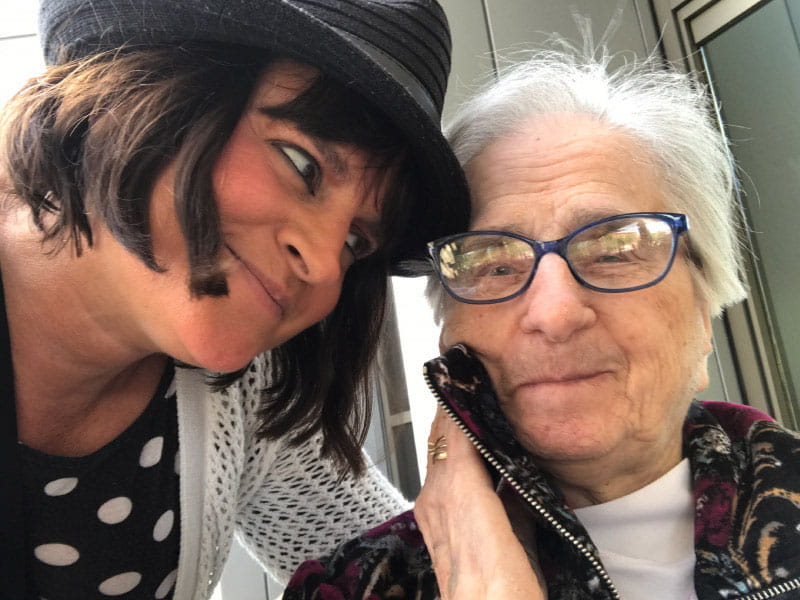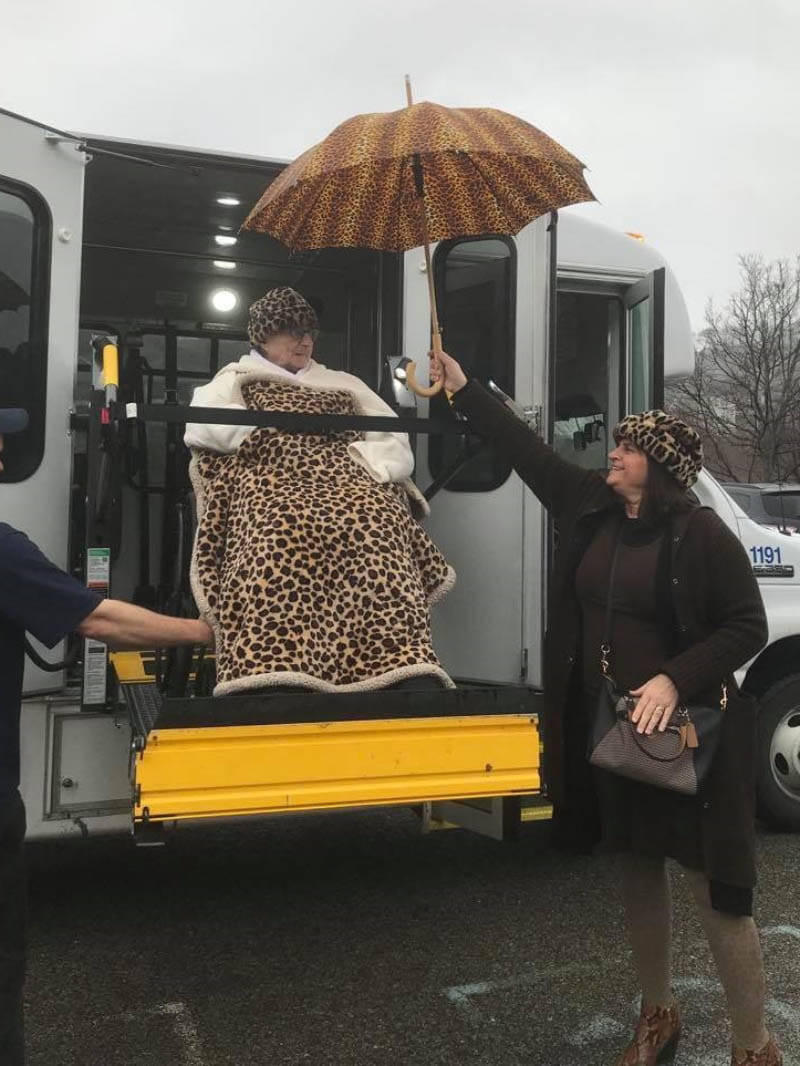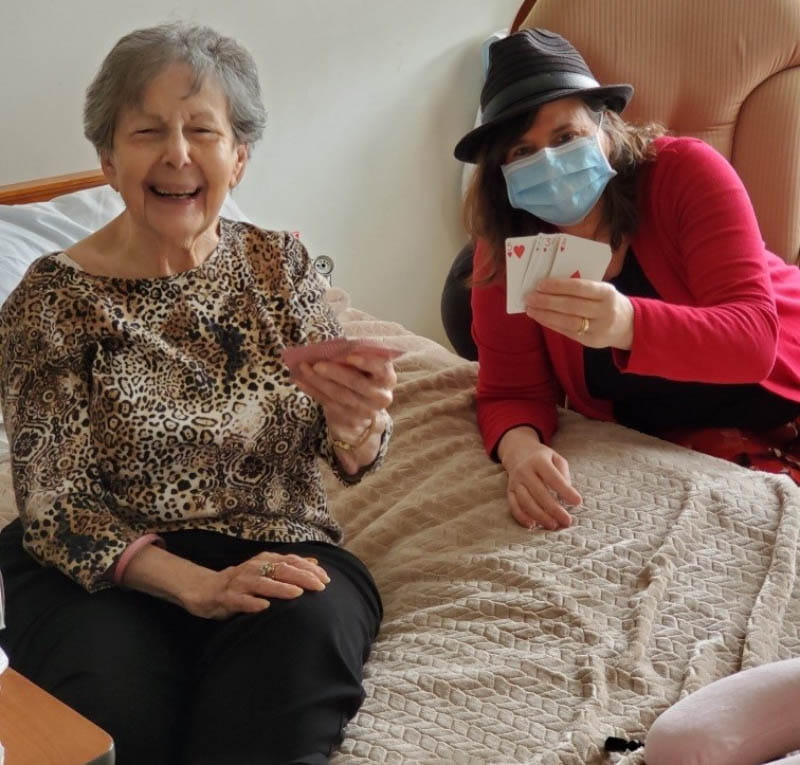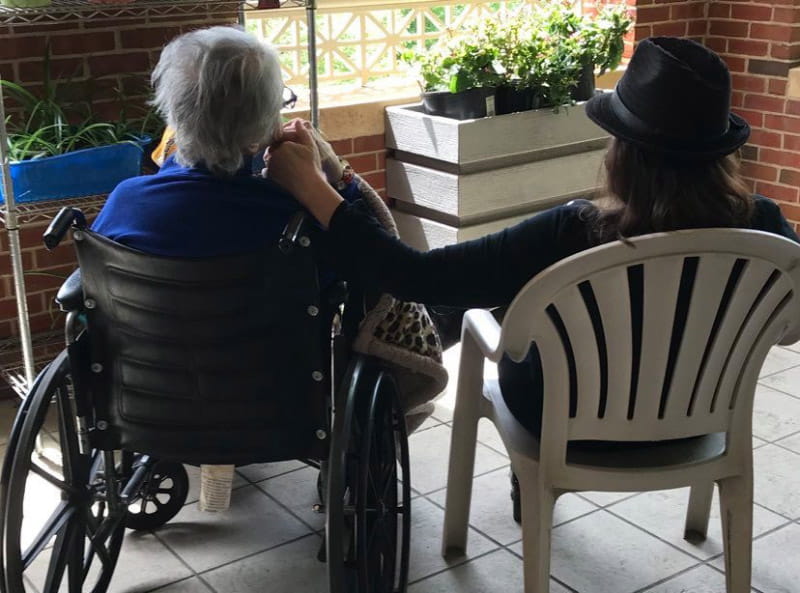When the pandemic closed her mom's nursing home to visitors, she moved in
By Diane Daniel, American Heart Association News

When the CEO responsible for a nursing home in Pittsburgh learned the facility would have to ban visitors during the COVID-19 pandemic lockdown, she immediately thought of JoAnne Klimovich Harrop, one of the residents' daughters.
"She was her mom's lifeline, and we couldn't cut off her mom's lifeline," Debbie Winn-Horvitz said.
Harrop wasn't just her mom's caregiver. They were the best of pals.
The youngest of five kids, Harrop was the only one who stayed close to home. She lived with her parents for three years after college. After marrying at 25, she and her husband, Perry, went to church with her parents every Sunday, then had dinner at their house, often enjoying her mom's legendary ravioli.
Mother and daughter talked every day and went on frequent outings, alone or with Harrop's father, Paul. They'd shop at the local mall, eat out, attend Pirates baseball games, go to church events, play bingo and go to the casino.
"I felt like I could tell my mom anything and she'd always tell me what she thought," Harrop said. "She was my best friend."
In 2004, Harrop's mother, Evelyn Klimovich, had a stroke. It left her paralyzed on one side. She began using a wheelchair. Harrop and her siblings helped her parents build a ramp, and Harrop continued taking her parents out.
In 2015, Klimovich's husband of 66 years, Paul, died at age 93. The following year, she broke her hip and moved to a nursing home.
Not only did Harrop visit her mother every day, she slept over most nights.
"I was always worried that my mom would need something in the middle of the night and no one would come to help," Harrop said.
She'd leave early in the morning to go back home and then off to work as a newspaper reporter. At first, she would sleep on a padded windowsill, but a nurse noticed and brought her a cot to keep in the 250-square-foot room.
"JoAnne's attention to her mother was well above and beyond anything I've seen," Winn-Horvitz said. "Which is why when we were making plans for the pandemic, I thought of her immediately."

She had a staff member call Harrop on March 13, 2020, under the assumption they would be closed to visitors for two weeks. The new policy was starting that evening.
"You're here every day with your mom and we know how important that is for her, so you can stay with her – but you can't leave," Harrop was told.
"I'm in," Harrop immediately said.
She had just over an hour to gather her things and drive to the nursing home before the doors closed.
As the two weeks turned into two months and more, her world expanded beyond her mom's tiny room.
Before the pandemic, Rose "Rosie" Mervis Wyner ate lunch and dinner with Klimovich every day. Wyner's son gave Harrop permission to visit her, and the two would play gin rummy. (Wyner usually won.) Harrop would update the son about his mother's health, often texting photos.

Harrop kept her own siblings updated, too. They made "window visits," sitting outside the building to talk to their mother through the glass. Meanwhile, Harrop's husband and her friends left supplies and meals for her at the front door.
The tight protocols paid off. Only one person – an employee, not a resident – tested positive for COVID-19 during the lockdown.
Sometimes Harrop would have to remind her 93-year-old mother why they couldn't go out.
"This is really bad, isn't it?" she once asked Harrop.
"Yeah, Mom, it's really bad."
Usually, Harrop tried to focus on the positive. She would get dressed and put on makeup and her trademark high heels and hats every day.
Weeks played out like a script.
Mondays were highlighted by hallway bingo; she was in charge of the prizes. On Tuesdays, a volunteer would drop off treats. The activities team made french fries to give residents on Wednesdays, and on Thursdays, the nursing home would order in lunch for the workers – including Harrop.
Along with taking care of her mother, Harrop assisted other residents when possible, talking to them from the hallways and making sure they stayed stocked up on personal care items.
"JoAnne was everyone's daughter," said Winn-Horvitz, now retired and living in Boynton Beach, Florida. "She became part of the team we formed to get through this horrendous, unprecedented situation."
In early April, opening day of the Pirates was canceled because of the pandemic. Not letting that fact deter her, Harrop helped Klimovich dress up in her finest team gear and led a rousing rendition of "Take Me Out to the Ballgame" with Wyner on piano in the hallway outside of her room. Other residents joined in the fun – at a distance.
A week later, after what seemed like a skin rash sent Klimovich to a hospital for a biopsy, mother and daughter received dreadful news. She was diagnosed with late-stage breast cancer.
Harrop tried to provide as much comfort as she could as her mother battled extreme pain and her body began to decline.

On June 5, 2020, Evelyn Klimovich took her last breath, with her daughter at her side.
Harrop stayed in the room one last night, this time sleeping in the bed with her mother's favorite stuffed animal, a pink pig she had bought with bingo earnings at the nursing home gift shop.
After Harrop was back home, many people marveled at what she'd done. They told her they could never stay in a nursing home and often avoided even visiting them.
"Don't be scared," said Harrop, who wrote a book about her pandemic experience. "People in there have great stories and cool lives. They had jobs and families, and they did a lot of things."
Nearly five years later, Harrop continues to visit Wyner, who turned 100 last year and still plays the piano.
"Rosie became a second mother to me," she said. "She, her son and daughter-in-law, they're my family now, too."
Stories From the Heart chronicles the inspiring journeys of heart disease and stroke survivors, caregivers and advocates.





